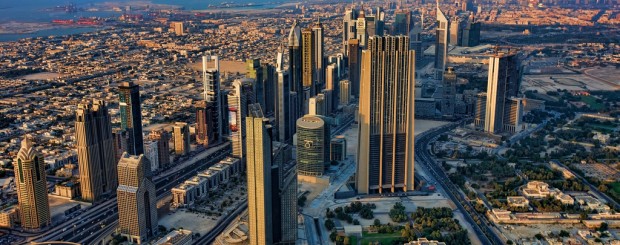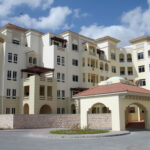9 Things I Learnt in My First Year as an Expat in Dubai
I’ve learned a lot about myself (and other people) during the years I’ve been an expatriate in Dubai. Selecting nine things I learnt in my first year as an expat has required quite a bit of thought.
Some are amusing, light, and fluffy, so I’ve opted to deal with these ones first. Others are a bit more philosophical – and at times uncomfortable. Some readers might want to look away when it gets to consideration of these, so I’ll duly flag the “serious adult content” when we get to that part.
1. Driving on the right with the steering wheel on the left
“No big deal!” readers from North and South America, European countries, and a few locations in Asia might say to this – but really, it was a big deal for me. It was my first experience of driving a car on the right-hand side of the road with the steering wheel on the left.
Expats from former British colonies, Commonwealth countries, areas of British influence, and Japan, as well the UK itself, might also find themselves in my position when they arrive here in Dubai and commence driving.
Actually, the steering wheel on the left isn’t such a big issue, as the pedals remain the same – accelerator to the right, brake to the left, or in the middle if you insist on a three-pedal car. The real problem for me was my brain needing to get used to the empty space – the passenger seat – being on my right. That, for a time, felt just plain wrong to me every time I drove.
How long did this feeling remain? From memory, about six weeks – or until the brain has retrained itself to the “new normal.” The good news is that, like riding a bike, once learned, you don’t forget. Now I can drive left side or right side with no significant disorientation or anxiety about accidents.
2. Driving behavior is cultural, and you are the one who needs to adjust
I very quickly learned that the norms of my driving practices weren’t necessarily the same as others on the roads in Dubai. People swap lanes without signaling, they accelerate into your space just as you are about to change lanes – even after you have signaled your intention to change for a good thirty seconds – and they avoid eye contact as a means of denying responsibility for having done anything wrong or discourteous.
You aren’t going to change any of the driving behaviors that will infuriate you, and telling endless stories to other indignant expats won’t change anything either. What you do need to do is sharpen your sixth sense to anticipate the accident-causing behaviors, and learn to drive defensively at all times.
It’s either that, or find yourself being blacklisted by insurance companies for the number of accidents that you are claiming each year.
3.Take extra care near a mosque on Friday around midday
You will very quickly note that parking practices become very irregular at pray time on a Friday. People will abandon their cars pretty much anywhere, and even roundabouts and road lanes can become blocked at times, becoming almost totally impassable.
The police will overlook this on a Friday, so don’t get the idea that you can call 999 or 901 and have the situation remedied by mass ticketing and towing-away. It’ll all be over by about 1:15pm, so do yourself a favor and stay home (or in the shopping mall or wherever else you are) at this time on a Friday.
4. Dress is important, but you don’t have to look like a nun
We want to fit in, and that means being culturally sensitive to what your hosts find acceptable, as well as knowing what is most assuredly not acceptable.
You don’t have to dress like an Emirati – in fact, that will not be appreciated unless you have been specifically invited to do so by Emirati associates or colleagues. This can happen, most likely around the time of UAE National Day (December 2nd), but wait to be asked because it is quite an honor and privilege.
For the rest of the time, look and learn. Less skin (rather than more) is culturally appropriate and downright sensible too, because that sun can burn. Specifically, the people who get stares are men in rubber sandals (thongs, flip-flops, jandals), very short shorts, and minimal singlets covering not very much at all.
Women who have more flesh uncovered than covered are not only offending a more conservative and modest sense of what’s appropriate, but they are also inviting themselves to characterized very unflatteringly. It is fine to wear shorts and a short-sleeved t-shirt, just don’t over do it.
Now, from this point on, we get a little more serious.
5. Expat life makes you a better global citizen…
Well, we hope so anyhow. I feel better informed about the cultures I have lived amongst and mixed with over the years abroad, but I’m well aware that others around me probably have deeper and richer insights.
There’s always plenty to talk about, share, and learn with others who have had equally rich and rewarding expatriate lives in other parts of the world.
Dubai is an especially terrific cultural melting pot because many cultures have been drawn here by the work opportunities of the past twenty years or so. You have a fantastic chance to expand your global horizons just through making friendships and mixing with people, but expatriates are also prone to a few personality traits…
6. Expats club together…
This is perfectly normal and understandable – of course you want to be able to relax with people who share the cultural norms of the country you grew up in, but there is a dark side. It can also be an “us and them” circling of the wagons, where tales of outrageous local behavior get shared and “tut-tutted” over by the group.
I’ve learned that there are people who have been here for years, and have never progressed beyond this. It’s made me wonder why they stay – but of course, it’s the same thing that lured us here in the first place, the money.
7. I’ve learned that not everyone adjusts…
It’s called “culture shock.” Culture shock hits first-time expats harder than the old hands, but we all go through it to an extent. With each new culture, we have to adjust our cultural behaviors and expectations. There are four distinct phases we all have to go through before we get to the final “It’s not home, but it’s OK. In fact, there’s a lot that’s really great” phase.
Some people take a very long time to get there, and some don’t get there at all. The physical and cultural disorientation of the shift can be so overwhelming that people – professional, intelligent people – take the option of “doing a runner,” which basically buying an airline ticket covertly, packing a suitcase, and leaving.
They also tend to leave a mess behind: bank-loans, car-loans, cars, furniture, and leases on apartments just abandoned. It’s not a very adult, professional, or mature way of dealing with problems, but I truly believe that most people who are driven to “do a runner” are temporarily desperate.
There’s actually a useful little book specific to Dubai and the UAE (published over fifteen years ago) on what to expect by way of culture shock traps, and how to navigate your way through them.
8. Culture shock also works in reverse…
After twenty five years as an expat, I am often shocked and disoriented by brief visits back to my homeland. I feel that I don’t really fit here either, and in my case, I’ve opted to reside, post-retirement, in another country altogether. For how long? Maybe for good… None of us really know what is in our future.
9. I learned that I’m one of the very lucky ones…
I’ve got a passport that gets me into a lot of places. I have a nice job I enjoy that pays me very well… Far better than a similar position in my homeland. I’ve also been lucky enough to have a large portion of my immediate family bring their skills to Dubai and secure good jobs, too.
So, my life has its needs for shelter, food, and familial company well and truly met, and I knew most of this by the end of my first year here.
I’m also very aware that there are many others here in Dubai and the UAE who are not as lucky as I have been – people who work six or seven days a week just to pay off the loans they had to take out in order to get here in the first place.
Amidst the glamor there is poverty. Many low paid workers are intent on sending much needed money to their homelands to support extended families there.
So, you’ll learn a lot working here in Dubai as an expat. Some of it is practical stuff, like finding your way around, where to get clothes tailored for a fraction of the cost back home, where to eat, drink, and have fun. But hopefully, you’ll also learn a few things about life and the different people of the world as well.








